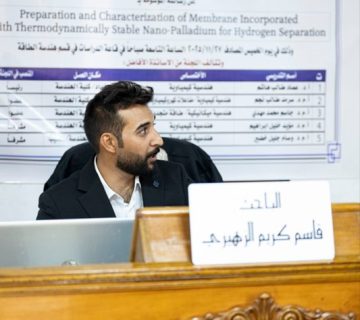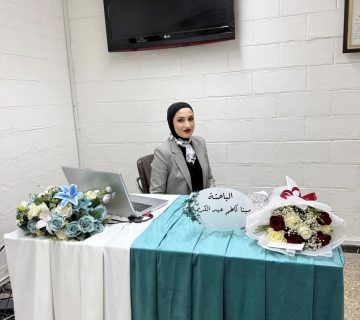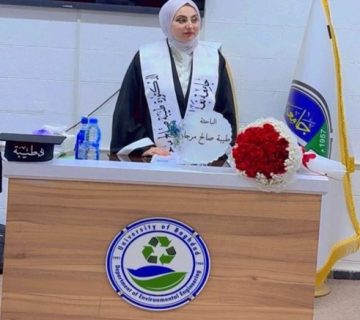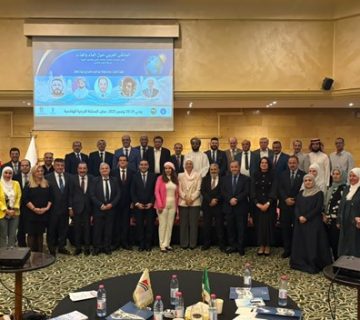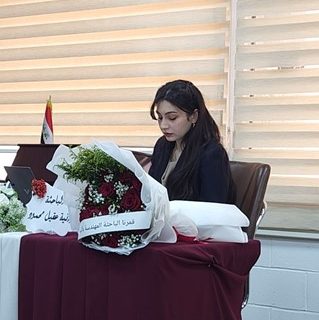The College of Engineering at the University of Baghdad held the public defence of the master’s thesis by Dana Mohsen Zahir, a master’s student from the Department of Water Resources Engineering, titled “Smart Irrigation Technique in the Fixed Irrigation System Based on Soil Moisture Content”. The defence took place on Wednesday, September 11, 2024, in the Dijla Hall at the Department of Water Resources Engineering. The examination committee was composed of Professor Dr. Basim Shaba Abed as the chair, along with Professor Dr. Rukaya Kazem Mohammed, Dr. Mohammed Rashid Zahir, and under the supervision of Assistant Professor Dr. Ali Omran Muhsin.
The main goal of this research is to reduce the amount of water consumed for crop irrigation by using a smart irrigation technique in fixed irrigation systems based on soil moisture sensors and comparing the water consumption with that of sprinkler irrigation for the same crop (yellow corn) and area.
The results of this research showed that the amount of water consumed to irrigate the yellow corn crop in the section dedicated to the smart irrigation technique over an area of 875 m² was 34.444% less than the amount consumed in the section using fixed sprinkler irrigation for the same area. Additionally, the yield of yellow corn (tons per dunum) using the smart irrigation technique was 11.3% higher than that obtained using fixed sprinkler irrigation.
The conclusions of this study were as follows:
- Water consumption in the smart irrigation system is 33.34% less than in the sprinkler system, with each sprinkler in the fixed sprinkler system consuming 120 cubic meters of water per season, while each sprinkler in the smart irrigation system consumes 80 cubic meters per season.
- The height of the yellow corn plants in the smart irrigation section was 5% taller compared to those in the sprinkler irrigation system.
- The yield (tons per dunum) in the smart irrigation system was 11.3% higher than that in the sprinkler irrigation system.
- Labor, operation, and maintenance costs in the smart irrigation system were 28.58% lower than in the sprinkler system.
- The use of smart irrigation helps increase the use of clean and sustainable energy sources, as solar energy is used to operate the smart irrigation system without the need for other energy types.
The thesis provided several recommendations, including the following suggestions for future research on smart irrigation technology:
- Study different types of irrigation, such as drip irrigation and other methods.
- Research various important crops such as sunflowers, wheat, and barley.
- Apply smart irrigation research to gardens, green spaces, and other public areas where irrigation water usage can be significantly reduced. This also applies to greenhouses.
- Utilize smart irrigation research in hilly and steep areas where water consumption is higher using traditional irrigation methods.
- Implement smart irrigation with wireless connections for soil moisture sensors and control panels, eliminating the need for wires.
After the scientific discussion and evaluation by the members of the committee, and hearing the researcher’s defence, the researcher was awarded a master’s degree in water resources engineering.



